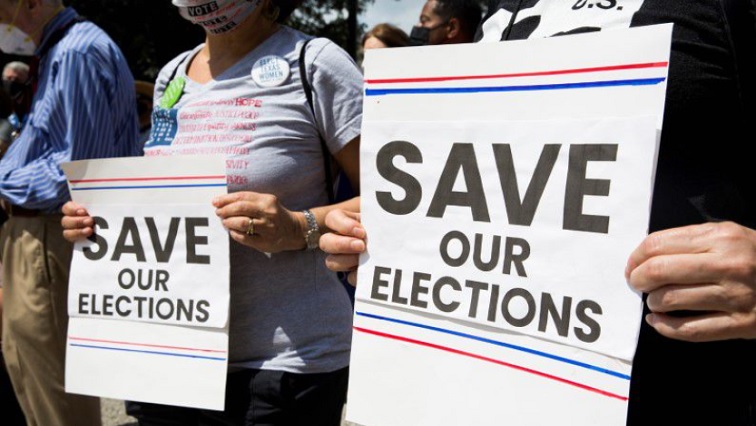The United States Senate will today take up federal voting rights legislation that faces unlikely passage due to unanimous Republican opposition and Senate rules that require at least 60 votes for major legislation.
The Upper House is evenly split 50-50 with Democrats in the majority due to Vice President Kamala Harris’ swing vote in her capacity as President of the Senate.
The major push from Democrats to pass a package of federal laws that include the Freedom to Vote Act and the John Lewis Voting Rights Advancement Act comes over concerns that various Republican led-state passed laws in the aftermath of former Donald Trump’s electoral loss to President Joe Biden in November 2020, seeking to limit future poll access.
As the United States marked Martin Luther King Jr. Day on Monday, the occasion was used to urge passage of the federal legislative voting rights package now before the Senate with President Biden recently explaining the stakes as he lobbied lawmakers on Capitol Hill.
“I hope we can get this done but I’m not sure. But, one thing for certain, like every other civil rights bill that came along, if we missed the first time, we could come back and try it a second time. If we miss this time, and the state legislative bodies continue to change the law not as to who can vote but who gets to count the vote, count the vote and count the vote. It’s about election subversion and not just whether or not people get to vote.”
Republican lawmakers in at least 19 states to date have passed dozens of laws since former President Trump’s defeat limiting voting times and the use of mail-in-ballots which reached new levels of popularity during the pandemic, while those Republican-led states are also raising voter-ID requirements despite voter-ID fraud being rare and over concerns that it disproportionately targets low-income, racial and ethnic minorities who often cannot afford or obtain the underlying documents needed for government-issued photo ID, rather using alternative legal forms of identification.
The legislation would make Election Day a national holiday, expand mail-in-voting, require states to make voting more accessible for people with disabilities while requiring states to broaden the types of ID acceptable for voting while outlawing the drawing of congressional boundaries to the advantage of one party over another.
“We can eliminate the filibuster with a simple majority and then pass this bill that every Democratic senator says they support. But as you’ve heard, a few people stand in a way, not just Republicans. Every one of them has taken an immoral position against voting rights. But that’s not who I want to talk about today. I’m talking about two Democratic senators, Senator Joe Manchin and Senator Kyrsten Sinema, who say they support the bill but refuse to eliminate the filibuster to pass. They think the real problem isn’t that our rights are being stolen. They think the real problem is a disease of division that can be cured with some optimism and conversation,” says Martin Luther King III, the son of the former civil rights leader.
This is a reference to the two Democratic Senators, who have refused to back efforts to change the supermajority threshold of 60 votes for legislative passage in the Senate.
“While I continue to support these bills, I will not support separate actions that worsen the underlying disease of division infecting our country. The debate over the Senate 60 vote threshold shines a light on our broader challenges,” says Kyrsten Sinema of Arizona.
Barring a seismic shift, the legislation is expected to be defeated. “President Biden has spread so much misinformation about the basic facts of state voting laws that he was called out and debunked by the Washington Post. This is misinformation. It’s a big lie. Designed to reduce faith in our democracy… justify a top-down election takeover… and justify smashing the Senate itself,” says Republican Senate Minority Leader, Mitch McConnell.
Unlikely passage but political theatre in the main as the Senate now takes the stage in this long-running battle over what elections should look like in the United States.






